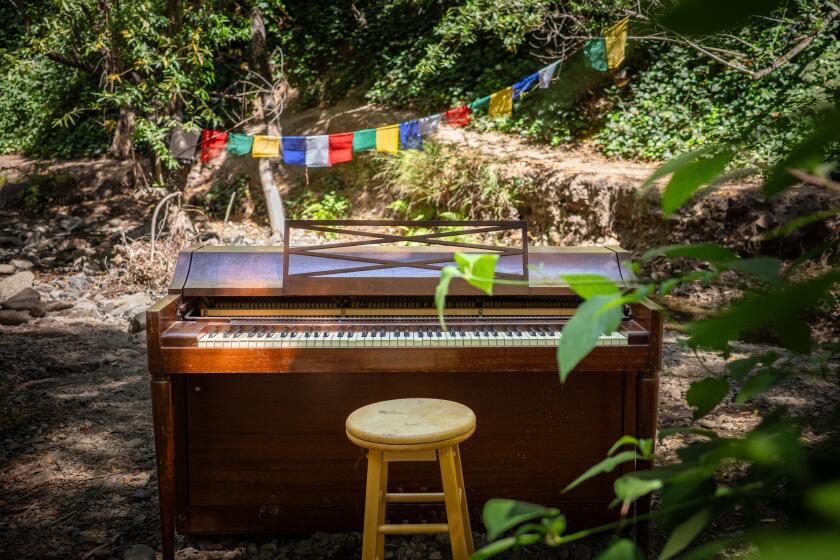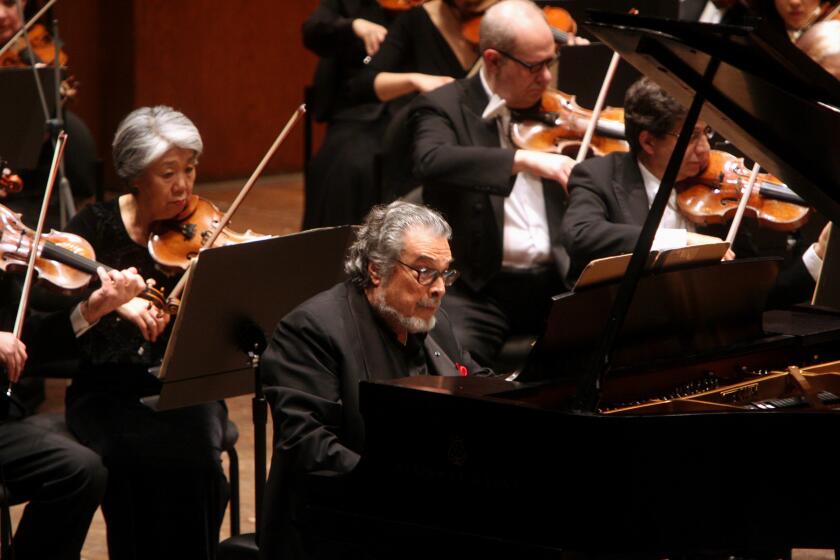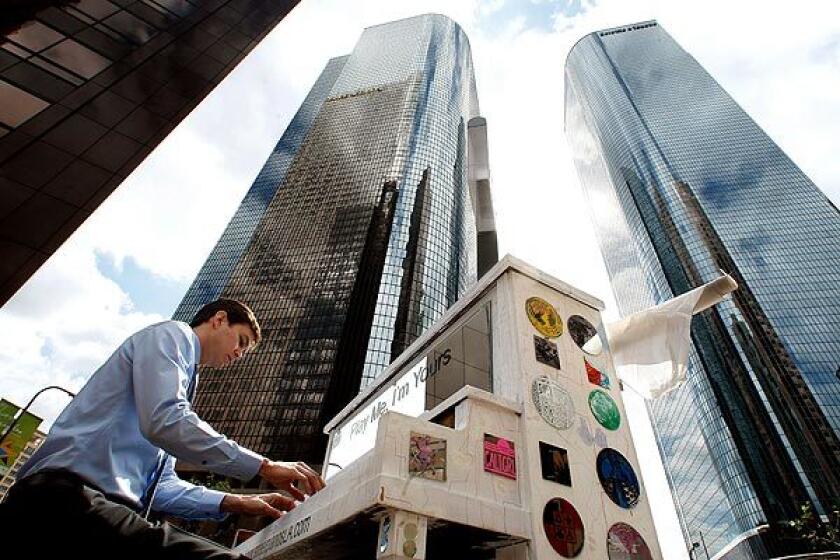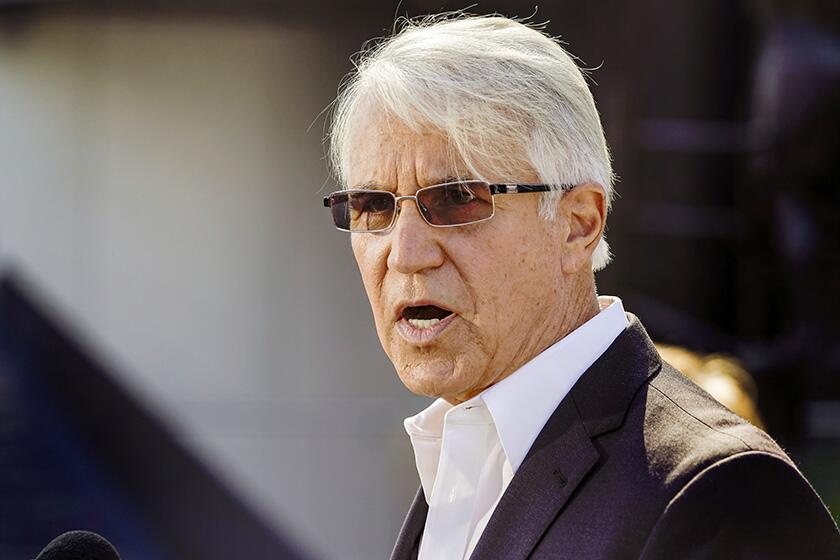Opinion: Where have all the pianos gone? No one has time for them anymore
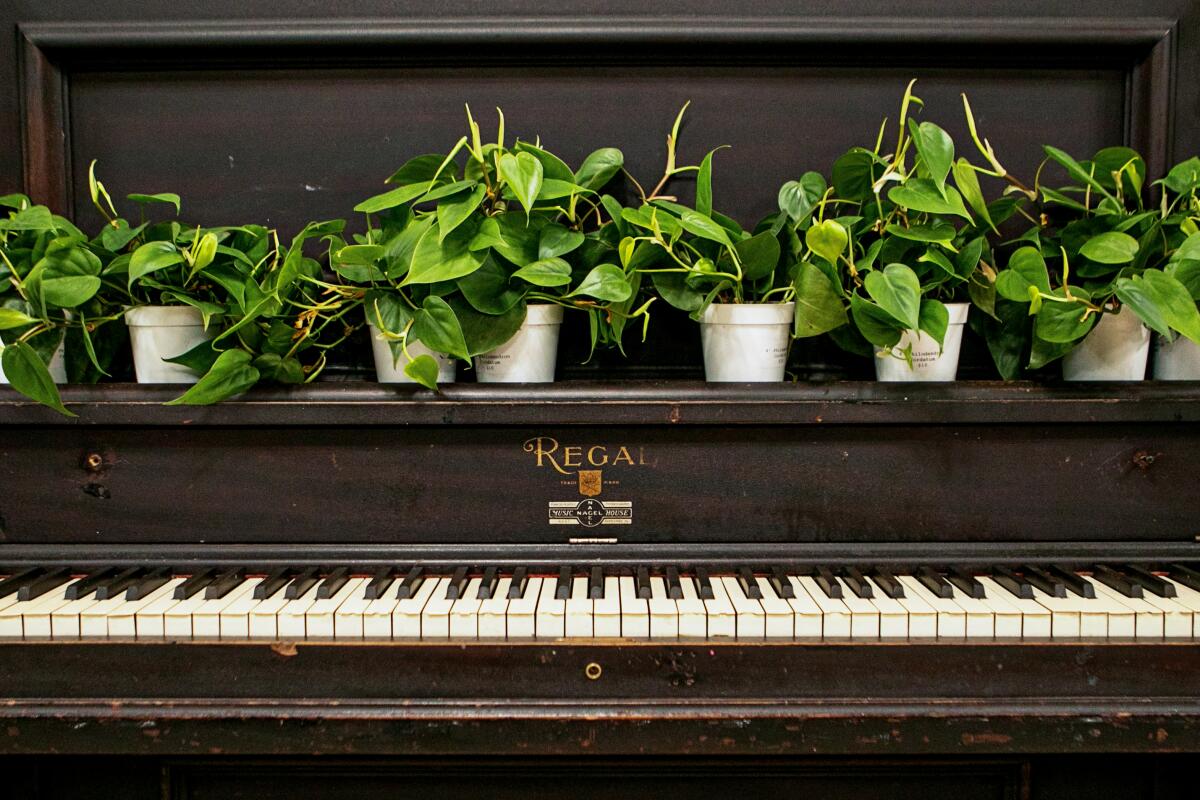
The students have too many activities and academic deadlines, the Montessori school principal informed me. This is not a good time for piano recitals, and the piano wasn’t needed either.
“Please feel free to take the piano and donate it” elsewhere, the email said.
Several months ago, with help from my favorite piano technician, I found a free upright piano and arranged for its delivery with the school principal. It stood against the back wall of the classroom, used as a table for lunches and backpacks, and now it was no longer wanted.
In a home, a piano may be a dusty piece of unused furniture. In this Oakland park, it spurred music and dancing. Video shows a snippet of a tribute to Sinéad O’Connor.
As a pianist, I wanted my children, who attended the elementary school, and their friends to hear the sound of a real piano at school. The kids have one music class a week, which involves a few pop songs played on a keyboard. There is nothing wrong with pop songs or keyboards. But I had imagined the kids’ delight at hearing the full sound of chords on a piano, the storm of a Beethoven sonata, the mist of a Debussy prelude, the bouncy bass of Scott Joplin.
After helping to arrange the piano delivery, I offered to play for the children, and to tell them about adventures in music and piano. But I never got the chance.
I have a soft spot for upright pianos. I learned to play on an upright of the brand Red October as a child in Soviet Odesa. Upon coming to the U.S., my parents bought an upright piano for me with the $200 they carried with them through months of immigration, so that I could continue my musical training. It was the only money they had.
My teacher, the great American pianist Leon Fleisher, taught his pupils about playing music for music’s sake, which COVID now forces musicians to do.
On that piano, I learned Chopin’s etudes, Tchaikovsky’s Concerto No. 1 and Beethoven’s sonatas. An upright can sound intimate and warm but also quite powerful, in a small room. As a penniless immigrant kid in Chicago, I struggled to assimilate into the privileged North Shore. While classmates told me to “go back to Russia” (nobody knew the difference between Ukraine and Russia back then), music had been my respite, thanks to that piano.
Classical music is losing audiences because of its perceived elitism. I believe this stems from the lack of early music education in schools, among other factors. Classical music stops being a closed world when the music is shared generously and with passion. And music’s most eager audiences are children, but how do we musicians share music with children, when it’s so hard to do so?
Middle and high schools in Los Angeles pride themselves on expanding their STEM curriculum and budget. School ratings are primarily determined by STEM scores; art and music are lowest on the totem pole. Are kids paying for adults’ lack of support for the arts? Hearing music in childhood can be a game-changer for them.
Thirty colorful pianos will be sitting outdoors around Los Angeles for three weeks, available for anyone to play.
Playing for children is immensely gratifying for a musician, because nobody absorbs with greater speed, responds with more excitement or explores the nature of music with fewer preconceptions.
Leonard Bernstein’s 53 Young People’s Concerts greatly increased children’s exposure to music through national televised broadcasts. Nothing of this magnitude exists in the U.S. today.
In Venezuela, El Sistema, the world renowned national music program that nurtured the L.A. Philharmonic’s conductor, Gustavo Dudamel, provides a musical upbringing to children in a politically and economically challenged landscape. Surely, the world’s richest country could commit to enriching its children’s lives in a similar way?
The lack of classical music in schools is emblematic of a larger trend. We have become tethered to quantifiable, competitive ways of judging how we educate our kids. Classical music and most other art don’t fit into that box.
It’s the escape from the box that challenges, inspires and allows the expression of genuine individuality. Getting to know classical music early on can serve as preparation for a life in the music industry or theater, or not. It can simply be a creative, sensory immersion that engages one’s emotions and expands the mind. It’s our responsibility to educate our children. But perhaps even more important is our duty to nurture their souls.
Inna Faliks is a professor and head of the piano department at the UCLA Herb Alpert School of Music. She is the author of “Weight in the Fingertips – A Musical Odyssey from Soviet Ukraine to the World Stage,” which will be published on Oct. 15.
